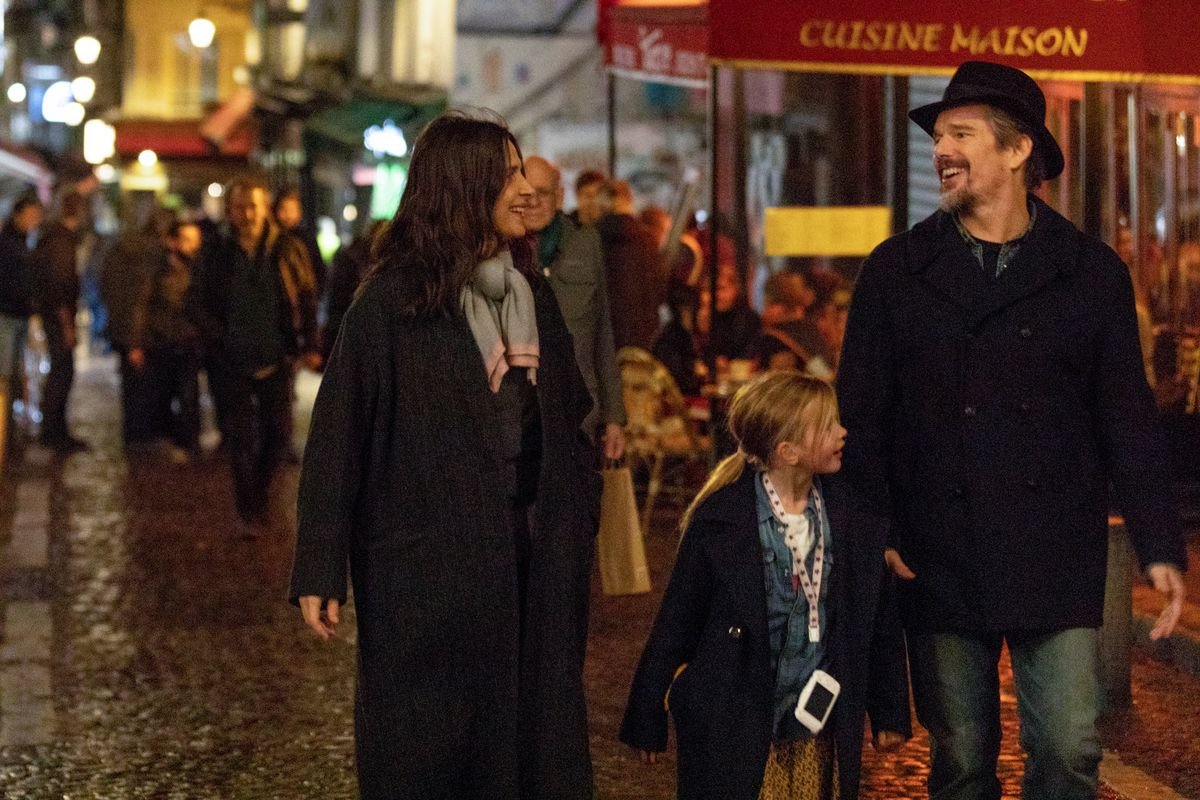For almost three decades, Japanese filmmaker Hirokazu Kore-eda has used movies as a way of exploring familial and other relationships between people, and the moments, big or small, that make life worth living. In After Life, he told a story about a group of recently deceased people tasked with picking and re-creating the happiest moments of their lives. In his 2018 Palme d’Or winner Shoplifters, he focused on a found family and considered what family bonds really mean. His latest film, The Truth, treads similar ground. His first feature set outside Japan, and his first in English and French rather than his native language, centers on the relationship between a mother and daughter, exploring how they choose to remember their fractious history.
Fabienne Dangeville (Catherine Deneuve, in a casting coup) is a French film legend. On the occasion of the publication of her memoir, La Vérité (The Truth), her screenwriter daughter Lumir (Juliette Binoche) returns to Paris to help her celebrate. But their reunion is tense, as Fabienne has stuffed the book full of half-truths and lies rather than actually painting a faithful picture. In particular, Lumir is frustrated with Fabienne portraying herself as a loving mother, when she was actually largely absent from Lumir’s childhood. Lumir is still holding onto that hurt, but when confronted, Fabienne simply says, “I prefer to have been a bad mother, a bad friend, and a good actress.”

A mirror of their relationship plays out in the movie Fabienne is working on, a science-fiction drama called Memories of My Mother. Fabienne plays a woman whose mother ceased aging while she was still a young woman. That role effectively puts her in Lumir’s shoes, since to everyone except Lumir, Fabienne remains an ageless icon of cinema, rather than an aging, flesh-and-blood person. But will acting out that scenario be enough to make Fabienne feel differently about the past?
The inclusion of Memories of My Mother is pointed, but Kore-eda smooths out how obvious it is by exercising his trademark subtlety in all other aspects of the film. He takes care to fill out Fabienne and Lumir’s lives. There’s Lumir’s American TV-actor husband Hank (Ethan Hawke), who lingers in the periphery, but can’t help but shine sometimes. (He’s played by Ethan Hawke, after all.) Then there’s Fabienne’s longtime assistant Luc (Alain Libolt), the closest thing she has to a true friend, who must reckon with Fabienne’s decision to leave him out of her memoir entirely.
Rather than focusing solely on Lumir and Fabienne, Kore-eda takes a broad scope, which gives The Truth some of his trademark warmth. The film has less of a sense of urgency than most of his other work — After Life had a weeklong time limit imposed on its characters, for instance, and disaster seemed to loom just off-screen in every frame of Shoplifters and Nobody Knows. But Fabienne isn’t on death’s doorstep, and the unease between her and her daughter has been brewing for a long time. Fabienne’s memoir does prompt arguments, but the blowouts aren’t what change Fabienne’s heart. As it does in real life, change happens slowly here, and incrementally.

Other characters scatter their own little lies throughout the film. Hank, an alcoholic, often tells his and Lumir’s daughter that he’s going to a job, when he’s actually going to rehab, hoping the lie will keep her from souring on him, the way Lumir’s soured on her mother. The Truth focuses on a single family, but it’s about families as a whole, and the stories people weave in order to alter memories and perceptions of each other.
In that mix of truth and lies, Kore-eda teases out the emotions that prompt and follow from them, and does it so deftly that the movie never totally succumbs to Deneuve’s titanic legacy, and the meta aspects of casting her for this role. If anything, her legend is a thread Kore-eda weaves into the story, as Memories of My Mother becomes a bridge between Fabienne and Lumir. The film becomes another way of creating a memory, capturing it forever on celluloid. The Truth is an unassuming picture, but like Fabienne, it leaves a lasting impression.
The Truth is available on VOD now.















































